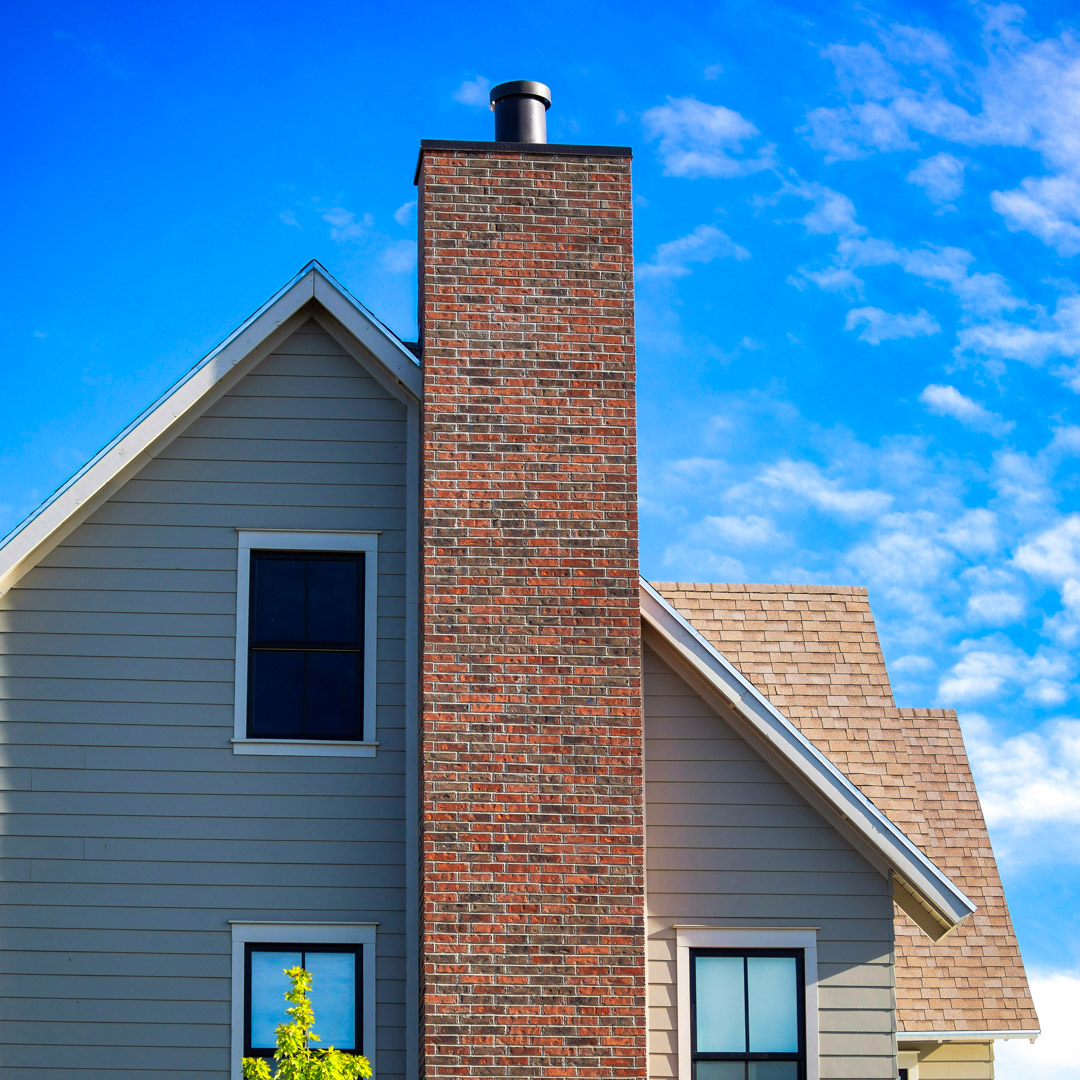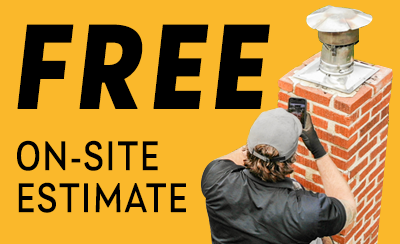Increase The Draft in Your Chimney
There’s a certain magical performance that a warm and cozy fireplace provides on a cool Buffalo morning. The dancing flames across the maple logs, the sound of a crackling chorus burning wood, and the sweet aroma that fills the air-all these are made possible due to the chimney draft. Without this invisible force of nature, lighting the fireplace or stove would be a daunting task.
 What is Chimney Draft?
What is Chimney Draft?
So, what is a chimney draft? The draft is the vertical movement of air through your chimney. This force is created by the difference in pressure inside the chimney and the cooler outside air. As the hot gases rise, a low-pressure area within the chimney pulls in fresh air to fuel the fire. This continuous airflow keeps the fire alive while pushing smoke and combustion byproducts out of your home.
Why is Draft Important?
There are three reasons why sufficient draft in the chimney is essential:
-
- Efficient Combustion: First, a constant flow of fresh air supplies the fire with the oxygen it needs to burn clean and efficiently in your fireplace or stove.
- Smoke Removal: Second, a strong draft efficiently pushes smoke, carbon monoxide, and other harmful contaminants up the flue where it exits your home at the top of the stack.
- Preventing Backdrafts: Third, insufficient draft can cause a dangerous phenomenon known as backdraft. It forces smoke and carbon monoxide fumes down the chimney and into your living space.
Common Reasons for Insufficient Draft
Several factors can contribute to poor chimney draft:
- Cold Chimney: Establishing a draft in a cold flue can be challenging.
- Closed Damper: A closed or partially closed damper restricts airflow, hinders the expulsion of harmful gases, and can cause a dangerous backdraft.
- Chimney Obstructions: Nests from birds or squirrels, accumulated creosote, or debris can block the flue, restricting airflow.
- Improper Chimney Height: To ensure proper draft, the chimney needs to be tall enough to extend above the roofline and nearby obstructions. Building codes often specify minimum height requirements.
- Oversized or Undersized Flue: The flue (the interior passage of the chimney) should be appropriately sized for the appliance. An oversized flue can weaken the draft, while an undersized flue can restrict this essential airflow. Ensuring the right size of the flue is an important factor in maintaining a good chimney draft.
How to Increase the Draft
Here are some practical steps you can take to improve your chimney’s draft:
Warm the Chimney
Before lighting a fire in a cold chimney, preheat it by burning some kindling or newspaper and holding it under the flue until you see smoke going up the chimney. When the air is heated, it creates an initial updraft so you can start a fire.
Clean the Chimney
Annual chimney inspections and periodic cleaning by a professional sweep when necessary are essential to remove creosote, soot, and other debris that can obstruct airflow.
Install An Exhaust Fan
In cases where natural draft is difficult to achieve, a chimney professional can install an exhaust fan to increase the draft in your chimney.
Consider a Baffle
If your chimney has an oversized flue, a baffle can be installed to reduce its size and improve the draft.
If you’ve tried these steps and are still experiencing draft problems, it’s best to consult a qualified chimney sweep like Felgemacher. We will inspect the chimney, diagnose the issue, and recommend the appropriate solution for your appliance and venting system.
Call Felgemacher for Certified Chimney Inspections & Repairs
Having trouble lighting or maintaining a productive fire? Contact the certified professionals at Felgemacher for expert chimney inspections, cleaning, and repairs in Western New York. We serve areas from Cazenovia Park in Erie County to Batavia in Genessee County, NY, and everywhere between Greater Rochester and Buffalo. Our certified technicians are dedicated to ensuring your chimney and fireplace operate at peak performance. To schedule an inspection, visit us online.




